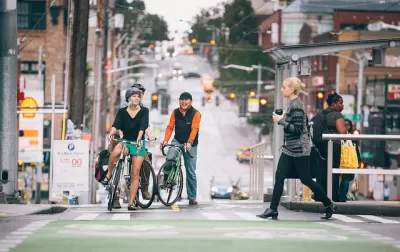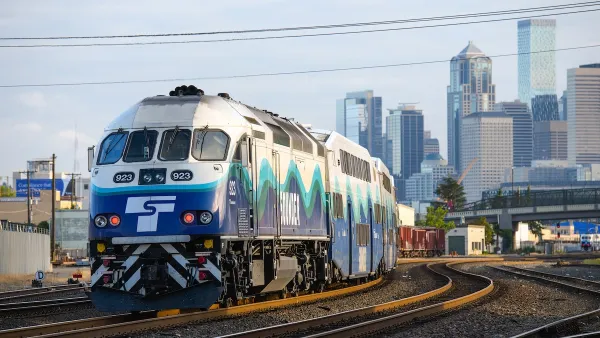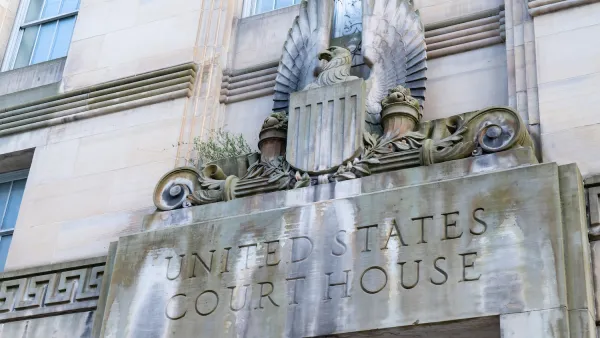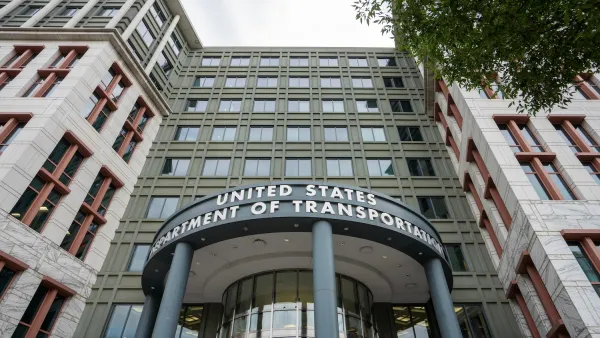Participants in the Local Infrastructure Hub bootcamps have a 40 percent success rate on federal grant applications for transportation, climate, food mitigation, rail, and broadband projects.

Smaller-sized cities are often at a disadvantage competing for billions of dollars in federal grants available largely because of lack of staff, in-house know-how, and other resources, according to a Route Fifty article by Elizabeth Daigneau. Fortunately, an initiative led by the National League of Cities is helping change that dynamic, offering free infrastructure “bootcamps” aimed at better equipping small cities and underserved communities to capture federal funding.
About 30 cities that participated in the Local Infrastructure Hub bootcamps won federal grants in the most recent round of Safe Streets and Roads for All program, Daigneau reports, including $10 million in Bethlehem, Pennsylvania, and $24 million in Dearborn, Michigan. The hub started in 2022 and to date has put 700 cities through its curriculum.
The success rate for grant applicants that participated in a Local Infrastructure Hub bootcamp is 40 percent, compared to an average success rate of 5 percent for applicants of competitive grants in general, according to Robert Blaine, senior executive and director for the National League of Cities' Leadership, Education, Advancement, and Development Center.
The hub’s bootcamps are tied to specific grant programs, with modules mirroring different sections of the grant applications themselves. “The new series of classes will focus on six grant opportunities that address transportation, roadways, electric vehicle infrastructure, climate resilience and clean water improvements,” writes Daigneau. Registration for the third round of bootcamps opened last month.
FULL STORY: Infrastructure ‘bootcamps’ help smaller cities win federal grants

Planetizen Federal Action Tracker
A weekly monitor of how Trump’s orders and actions are impacting planners and planning in America.

Congressman Proposes Bill to Rename DC Metro “Trump Train”
The Make Autorail Great Again Act would withhold federal funding to the system until the Washington Metropolitan Area Transit Authority (WMATA), rebrands as the Washington Metropolitan Authority for Greater Access (WMAGA).

The Simple Legislative Tool Transforming Vacant Downtowns
In California, Michigan and Georgia, an easy win is bringing dollars — and delight — back to city centers.

Albuquerque’s Microtransit: A Planner’s Answer to Food Access Gaps
New microtransit vans in Albuquerque aim to close food access gaps by linking low-income areas to grocery stores, cutting travel times by 30 percent and offering planners a scalable model for equity-focused transit.

This City Will Pay You to Meet Your Neighbors
A North Kansas City grant program offers up to $400 for residents to throw neighborhood block parties.

Commentary: Our Silence Will Not Protect Us
Keeping our heads down and our language inoffensive is not the right response to the times we’re in. Solidarity and courage is.
Urban Design for Planners 1: Software Tools
This six-course series explores essential urban design concepts using open source software and equips planners with the tools they need to participate fully in the urban design process.
Planning for Universal Design
Learn the tools for implementing Universal Design in planning regulations.
Smith Gee Studio
City of Charlotte
City of Camden Redevelopment Agency
City of Astoria
Transportation Research & Education Center (TREC) at Portland State University
US High Speed Rail Association
City of Camden Redevelopment Agency
Municipality of Princeton (NJ)





























